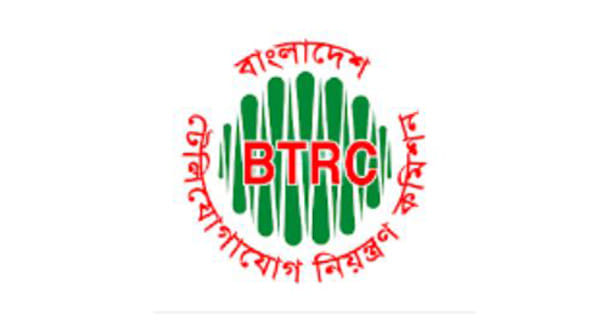Bangla Phone may get NTTN licence

The Bangladesh Telecommunication Regulatory Commission (BTRC) recently approved a Nationwide Telecommunication Transmission Network (NTTN) licence for Bangla Phone Ltd, the first such licence to be issued in the country in 11 years.
According to state guidelines, the licence is primarily for building, maintaining and managing a nationwide fibre-optic transmission network and sharing infrastructure for telecom operators and internet service providers.
The BTRC approval will be sent to the Ministry of Posts, Telecommunications and Information Technology for vetting before the licence is awarded.
Bangla Phone had initially applied for the licence on June 23, 2011, but the ministry rejected it on July 6, 2014.
After the company filed a writ petition, the High Court directed a review, but the ministry upheld its rejection on June 12, 2016.
Bangla Phone reapplied on September 30, 2024, prompting the BTRC to form a committee on January 31, 2025, to evaluate the request.
The committee highlighted the need for expanding transmission networks to remote areas at affordable costs to ensure broader digital services.
It also stressed the importance of creating an investment-friendly environment to expand the telecom transmission network nationwide.
It emphasised separating transmission networks for efficiency and ensuring cost-effective infrastructure expansion.
Considering the existing inadequacy of transmission networks in the country and Bangla Phone's infrastructure, which was previously permitted, the committee recommended issuing a new NTTN licence to the company.
After reviewing the committee's report, a BTRC decision-making body approved Bangla Phone's licence.
If permitted by the ministry, Bangla Phone's entry into the sector will potentially improve broadband access and reduce service costs.
Currently, there are six NTTN operators in Bangladesh, collectively covering 148,000 kilometres with optical fibre, according to the BTRC documents.
The country's first NTTN licence was awarded in 2008 to Fibre@Home, which operates a network spanning approximately 50,000 kilometers.
Summit Communications covers around 40,000 kilometres, Bahon Limited 7,817 kilometres, Bangladesh Telecommunications Company Limited 40,000 kilometres, Bangladesh Railway 3,800 kilometres, and the Power Grid Company of Bangladesh about 8,500 kilometres.
Additionally, the government has laid around 35,000 kilometres of optical fiber under projects such as Info-Sarker 3 and Connected Bangladesh. Mobile operators have around 8,200 kilometres of optical fibre infrastructure.
The BTRC's decision comes amid growing calls from telecom experts to reduce the number of infrastructure companies in order to minimise network duplication.
However, mobile operators and broadband internet service providers continue to push for permission to deploy their own fibre networks.
Bangla Phone, which has been operating in Bangladesh since 2004, has a fiber optic transmission network spanning over 13,000 kilometres.
Amjad H Khan, chairman of Bangla Phone, said the company's four licences, including an International Internet Gateway (IIG) licence, were cancelled during the previous government's tenure.
When asked about the need for an NTTN licence, he said the country still lacks adequate telecom infrastructure, creating opportunities for more players to contribute.
Regarding his plans, he said he would share the details once the licence was obtained.



 For all latest news, follow The Daily Star's Google News channel.
For all latest news, follow The Daily Star's Google News channel.
Comments